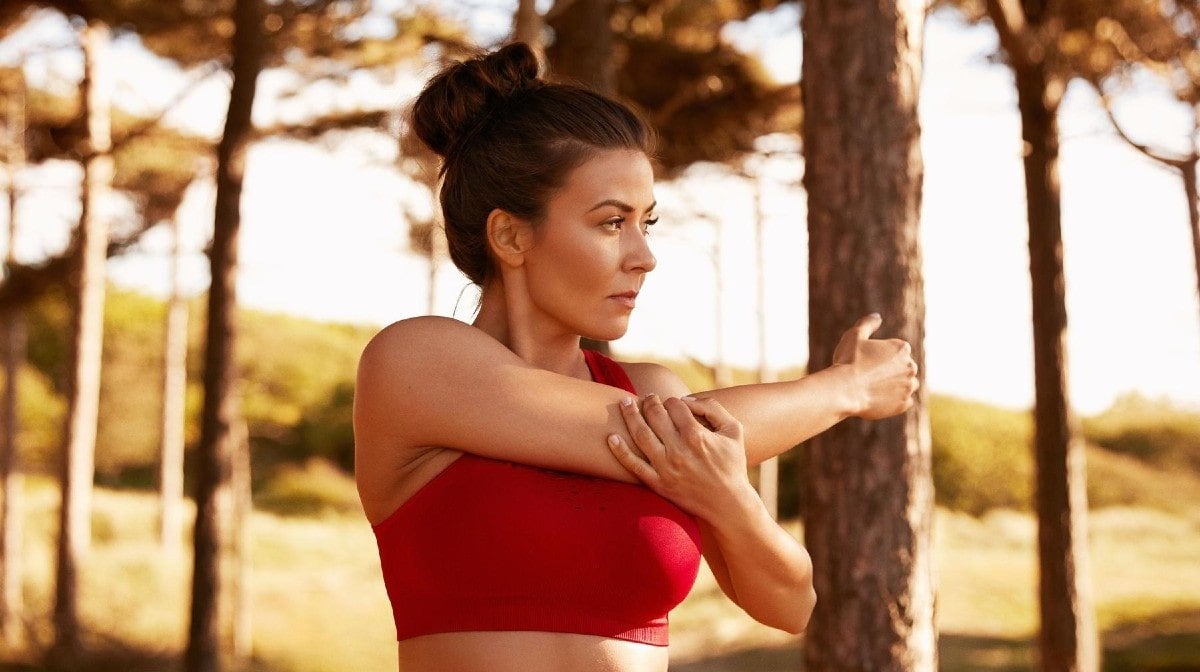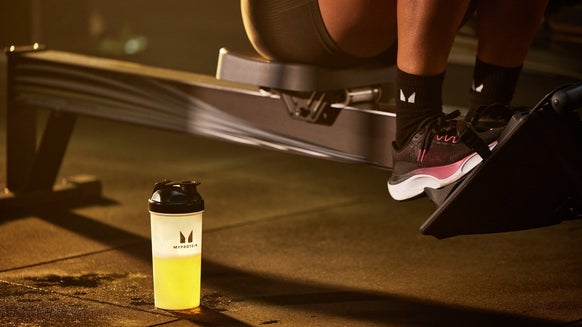Here’s What Happens When You Take A Break From Your Fitness Routine

First off, if you’re worried about missing a day’s workout, then stop reading after the next sentence. It’s totally okay to miss a day and this will have absolutely no impact on your fitness levels or body composition — in fact, it might actually do you some good to rest up.
If it’s been a week or two, or even a couple of months, then you can expect a few changes in strength, endurance, body fat, and metabolism to name a few. Here’s what to expect week by week…

Week 1
Taking a week of from training probably won’t do you much harm at all. In fact, a week of relaxing, longer sleeps, and a bit of stretching may do wonders for your recovery, injury prevention, and energy levels, leaving you ready to hit your routine head on the week after.
If you have to take more than a week off, then look at fitting in a reduced workout schedule as this will slow down the effects of a sedentary lifestyle — remember, anything is better than nothing.
Week 2
According to research, this is the week that you’ll start to see a reduction in your aerobic capacity. Feel like your lungs might explode after taking the stairs? That’ll be why…
One study found that VO2 max decreased by 50% in rats after 2 weeks of no exercise — that’s the optimum rate at which your lungs, muscles, and heart can use oxygen during exercise. Another study of elite football players found that their high intensity sprint performance was negatively affected after 2 weeks off. You perhaps don’t need to worry quite so much about body composition though, as this study found no significant difference in body composition after this period.
1 month
Even if you’re an elite athlete, after a month or more off from regular exercise, you’re going to notice a few changes. One study looking at competitive swimmers found that body fat mass increased by around 12% and there was also a decrease in VO2 max after 4-5 weeks. This study was only on 8 swimmers, but other studies have shown similar results too.
Another study on elite athletes found that endurance decreased by 21% after 4 weeks of detraining. It’s not all bad news though, if you’ve skipped training for a month, then your strength can be more or less maintained after a month off, however, if this strength is recently gained then you may feel a greater loss than someone who’s been training for a while, according to another study.
2+ months
Put it this way, don’t expect to be able to lift your previous PB on your first day back. After this much time away from exercise, you’re probably going to be feeling pretty unfit. Whether it’s from injury, or another reason entirely, don’t let starting from square one put you off.
In fact, some research makes us think it’s easier to get back to where you were the second time than it was the first. Some studies claim that “muscle memory” means that some special cells in your muscles remember how to do certain movements, making it easier to progress than the first time (still takes a ton of hard work though).
Take home message
Remember, however long it’s been, it’s never too late to start up again. If your fitness routine is being put on the back burner for a while, then keep in mind that anything is better than nothing when it comes to exercise — squeezing in ten minutes here and there, or working around an injury can make all the difference to your health, overall fitness, and body composition.
READ THIS NEXT:

5 Benefits Of Working Out At Home — Let's Look On The Bright Side!
Let's put our positive pants on.

5 Self-Care Tips for Your Next Workout
In need of spicing up your gym session with some extra self-care? We've got you covered.

Evangeline has taken part in competitive sports since a young age. As a qualified RYA Dinghy Instructor, she understands the importance of proper nutrition for fuelling extreme and endurance sports, especially due to her experience in Team GBR Squads and captaining and coaching her University first team.
In her spare time, Evangeline loves running – especially marathons. On the weekends, you’ll find her taking on water sports or hiking up a hill. Her favourite evenings are spent taking on a HIIT session or squats in the gym before digging into some spicy food and a ton of vegetables – yum!
Find out more about Evie's experience here.





